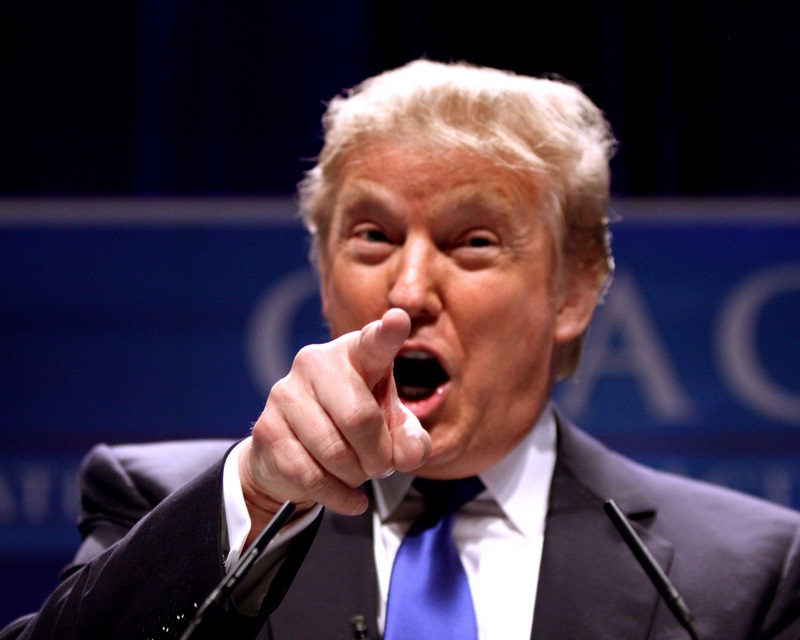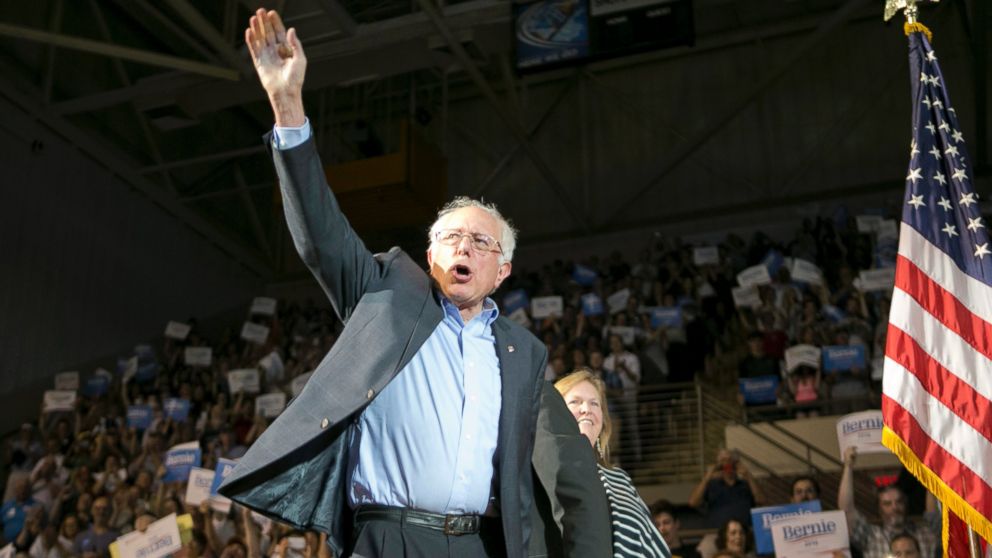 Shaped as it was by yesterday’s
horrifying terrorist attacks in Paris, tonight’s Democratic Party primary
debate exposed the impoverished state of coherent, intelligent, and
forward-looking thought about international affairs in the Democratic Party. While none of the three candidates offers the
same toxic mix of casual and catastrophic violence, xenophobia, and rank
ignorance as the GOP, they had nothing like a coherent, progressive,
imaginative policy agenda for thinking about and acting on the major challenges
facing a world wracked by violence.
Shaped as it was by yesterday’s
horrifying terrorist attacks in Paris, tonight’s Democratic Party primary
debate exposed the impoverished state of coherent, intelligent, and
forward-looking thought about international affairs in the Democratic Party. While none of the three candidates offers the
same toxic mix of casual and catastrophic violence, xenophobia, and rank
ignorance as the GOP, they had nothing like a coherent, progressive,
imaginative policy agenda for thinking about and acting on the major challenges
facing a world wracked by violence.
There were, however, substantial
differences in the ways in which the three candidates reflected on events,
viewed recent history, and deliberated about how to contend with global
terrorism.
Clinton invited us to think about
history and invoked a history of U.S. “victimization” by history. But a truly historical perspective would ask
us to think about why the U.S. has been attacked over the years, and whether
our behavior has created some of these threats.
They did not, after all, emerge from nowhere. In contrast, Sanders invoked the history of
U.S. efforts at regime change around the world, and connected these to
terrorism and instability. I know whose
grasp of historical evidence and critical thinking would earn the better grade
in my history class!
Martin O’Malley was similarly
disjointed in attempting to outline an international policy agenda. He identified the lack of human intelligence
as central to the countless failures of U.S. foreign policy making in the past
years. That is incredibly naïve, and
overlooks the far more important role of a dysfunctional worldview and an
over-mighty security state in mangling our ability to engage rationally with
the world.
Nonetheless, no candidate was as
frightening as Clinton when it came to articulating a foreign policy, not least
because of her record. We know Clinton
as a supporter of the illegal, immoral, and disastrous war in Iraq. We know her as the Obama administration’s
strongest civilian advocate for regime change and war in Libya, Syria, and
elsewhere in the Middle East. We know
her as a reactionary who, as Secretary of State defended dictators and
autocrats against the democratic uprisings of the Arab Spring and helped to
ensure, through her defense of them, that those uprisings were failed or
mangled in many instances. We know her
as a defender of unconscionable Israeli colonialism that endangers the lives of
Palestinian subjects and Israeli citizens alike. We know her as a defender of Morocco’s
indefensible colonialism in Western Sahara.
And we know her as the public servant who attacked as a traitor Edward
Snowden, who shed light on the terrorism and abuse of the security state she
has helped to enlarge.
Tonight’s debate offered further
evidence of the dangerous nature of Clinton’s worldview. She blamed the rise of ISIS on the Iraqi
government and the Assad government in Syria.
Neither of those governments are blameless. But to omit mentioning that the event most
responsible for the creation of ISIS was the war in Iraq that she voted to
authorize, and then never critiqued except along managerial lines, is
appalling.
Clinton also referred to former
Egyptian president Mohamed Morsi as the “Muslim Brotherhood president” in Egypt
who was “installed”. The reality, as
Clinton should recall since she was Secretary of State at the time, is that
Morsi won an election, and was “elected”, not “installed”. She might not care for the Muslim
Brotherhood. But the choice of president
was Egyptians, and not hers. But I can
understand her reluctance, given the effort she expended in undermining Egypt’s
democratic uprisings and defending the dictator Mubarak’s regime in the name of
“stability”, small comfort to the Egyptians who perished or whose rights were
extinguished under his 30 year regime.
When asked how to confront ISIS and
other instances of terror, Clinton invoked the Authorization for Use of
Military Force passed after 9/11, suggesting that it was sufficient to
authorize a president’s military response to ISIS. This is deeply disturbing. AUMF gave Bush the authorization to “use all
necessary and appropriate force against those nations, organizations, or
persons he determines planned, authorized, committed, or aided the terrorist attacks
that occurred on September 11, 2001”.
ISIS is in some regard connected to
9/11, inasmuch as the Bush Administration used it to gain public support for
their invasion of Iraq and lied about connections between Al Qaeda and Saddam
Hussein in order to persuade irresponsible and frankly ignorant representatives
like Hillary Clinton to write them a blank, bipartisan check for the war that
created ISIS.
But the idea that a 2001 authorization
for the pursuit of those individuals who attacked the U.S. 14 years ago can
grant the president the authority to wage war against any terrorist group in
2015 is absurd, makes a mockery of the law, and demonstrates how quick Clinton
would be to abuse Bush-era laws and take the U.S. into new wars.
Clinton’s foreign policy record should
be subjected to far more critical scrutiny by both Sanders and O’Malley, and
the media.
Sanders was less hesitant than in
previous debates to criticize Hillary Clinton, and having identified her vote
for the Iraq war as a mistake with dire consequences, he also called attention
to her long-term ties to Wall Street.
Clinton took umbrage, and whined about
having her integrity impugned. Sanders
must have used a microscope to locate and question her integrity, given her
career of hypocritical, regressive, flip-flopping, neo-conservative
war-mongering, and sympathy for the irresponsible financial industry.
Sensing that she was on the defensive,
Clinton actually went so far as to invoke 9/11 as the reason for Wall Street’s
support for her campaigns over the years to the tune of more than $35 million
(her total haul of corporate money is far higher).
Hillary Clinton once again revealed
herself as the most right-wing of the three candidates when it came to social
welfare. She refused to acknowledge
healthcare as the right that it is in much of the world, as opposed to the
privilege that the over-priced and under-performing healthcare sector is the
U.S.
She also proved her regressive
credentials when it came to higher education.
The moderator criticized Bernie Sanders’ plan to make public higher
education free by citing a 63% graduation rate across colleges. This low rate, the moderator suggested, was a
good reason not to “waste” money on making that education free
What Sanders should have said but
didn’t is that a significant reason why a large number of college attendees
have difficulty in completing their degrees is the high costs and massive debt
associated with higher education. Many
students drop out because of this debt, and others leave their degrees
unfinished as their college careers drag out over too many years because of the
need to work as they study.
Investing in higher education, and
making it free—as it was in many states for many years—is a good way to equip
students with the tools to finish their degrees and emerge unencumbered by
crippling debt.
For the second debate running, Hillary
Clinton angled for cheap applause, framing her opposition to free public higher
education as an opposition to taxpayers paying for Donald Trump’s kids to go to
college for free.
But the very definition of public
higher education is a system in which ALL students, irrespective of their
parents’ wealth, attend college for free, supported by the taxpayers at large,
who pay into that system according to their wealth. Until the likes of Ronald Reagan came along,
this was the model in California, home of the country’s—and arguably the
world’s—best system of public higher education.
There were important moments during the
domestic policy sections of the debate.
But I was most struck by the initial, lengthy foreign policy discussion.
It left me disheartened. The Democratic Party has ceased to be—if it
ever was—an entity which has anything resembling a moral or coherent world
view, any sense of history, or an ability to hit back at the narrative our
security state has constructed about the place of the U.S. in the wider
world. The Party is increasingly being
pulled to the left in economic terms, and this will be to the long-term benefit
of our public. But none of that
progressive momentum has filtered into thinking about international affairs,
institutions, or innovations, and I fear for our country and our world.
In the past week, events in Beirut,
Paris, and elsewhere have illustrated some of the dangers—regularly on display,
often un-reported—that define the lives of too many people in the world. They have illustrated the inadequacy of our
global institutions, our policy frameworks, and our leadership to address our
global crisis with anything resembling long-term or thoughtful
policymaking. The U.S. must play a role
in whatever changes occur in this sphere.
And while the Republican Party offers nothing but naked violence, I see
little better coming from a morally and intellectually impoverished Democratic
Party based on tonight’s debate.
 Donald Trump long ago
stopped being a joke and began representing a serious threat to our
country. From the beginning,
I argued that his campaign could be characterized as fascist, and that in
this he represented not an aberration within the Republican Party, but a trend.
Donald Trump long ago
stopped being a joke and began representing a serious threat to our
country. From the beginning,
I argued that his campaign could be characterized as fascist, and that in
this he represented not an aberration within the Republican Party, but a trend.

